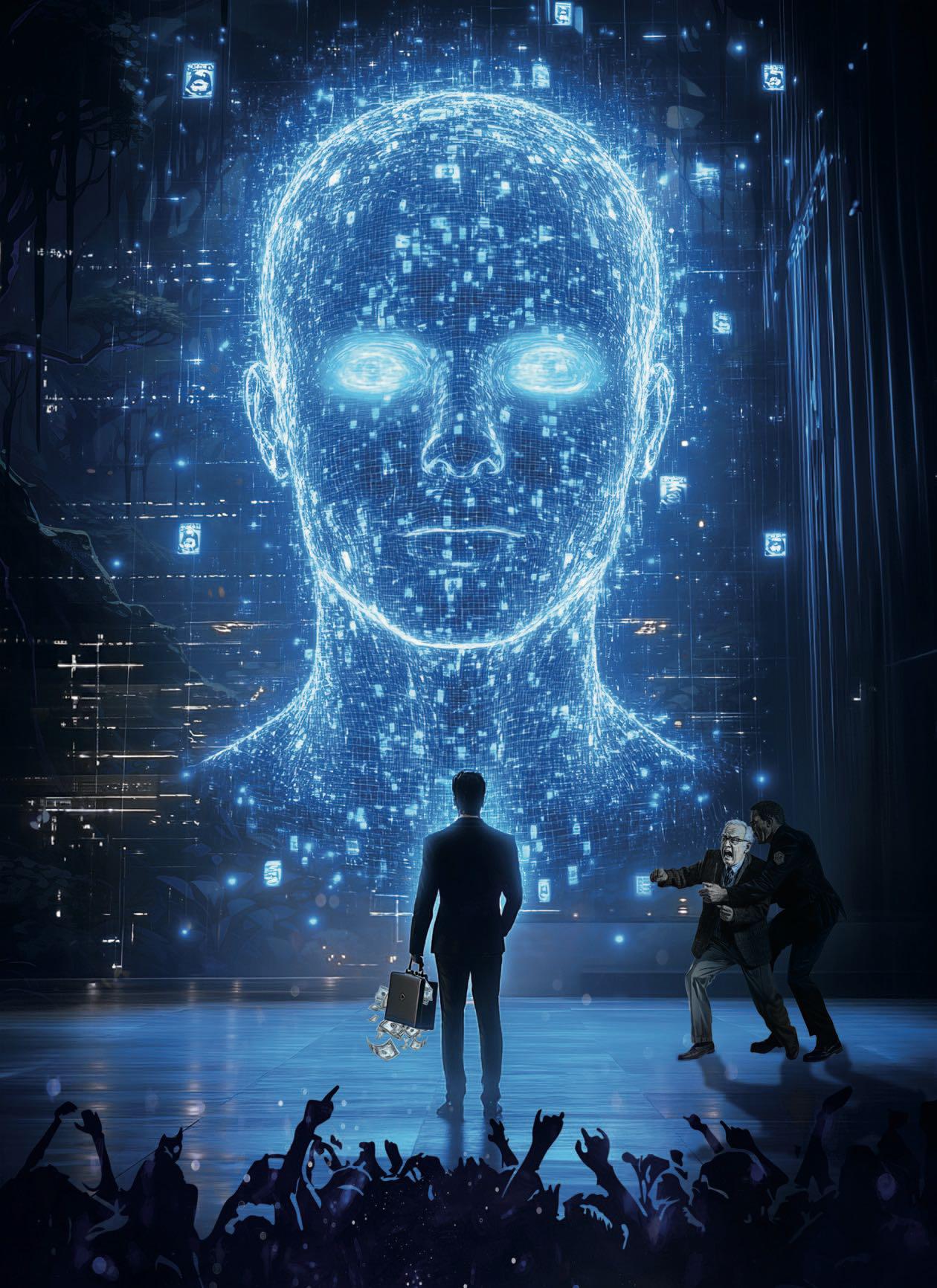Essayer OR - Gratuit
Technologists & Ethicists
Philosophy Now
|February/March 2024
Stephen L. Anderson laments inadequate moral insight among tech leaders.

For many of us the world's first global pandemic for a century was a watershed moment. The Covid-19 crisis was plausibly claimed to have been caused by risky 'gain-of-function research': that is, through the deliberate enhancing of viruses. That would be a tremendous technological achievement, but also an ominous one. It would also be a global example of what can happen when human technical ability is untethered from adequate moral reflection: global disaster. Nor is this the first time we've glimpsed how terrifying human invention can be. As Robert Oppenheimer famously exclaimed when the first nuclear bomb was detonated, "Now I am become Death, the destroyer of worlds." He wasn't kidding. Due partly to his assistance, we are now indeed capable of destroying all life on this planet. None of us can doubt anymore that the entire world has a stake in seeing technology managed well.
I was reminded of this again when reading two books about AI: Michael Kanaan's T-Minus AI (2020) and John Lennox's 2084 (2024). The central concern of both is the disconnect between the impact of our global computer technologies and the ethics required to manage them. Kanaan is more guardedly positive about the possibilities of AI, whereas Lennox is less enthused; but both express similar serious hesitancies about where AI is about to take us all.
Cette histoire est tirée de l'édition February/March 2024 de Philosophy Now.
Abonnez-vous à Magzter GOLD pour accéder à des milliers d'histoires premium sélectionnées et à plus de 9 000 magazines et journaux.
Déjà abonné ? Se connecter
PLUS D'HISTOIRES DE Philosophy Now

Philosophy Now
Books
Lucy Weir takes a wheel of healing for an intellectual spin, Frederik Kaufman examines a theory of the origins of equality, and Frank S. Robinson doubts a holistic vision of life, the universe, and everything.
14 mins
October/November 2025

Philosophy Now
Moral Decision-Making for a Job Search
Norman Schultz wonders when working is wrong.
14 mins
October/November 2025

Philosophy Now
The Mediation of Touch
A conversation between Emma Jones and Luce Irigaray.
15 mins
October/November 2025

Philosophy Now
Edward Gibbon (1737-1794)
John P. Irish considers some principles of history through the history of a historian.
11 mins
October/November 2025

Philosophy Now
Karl Sigmund
is an emeritus professor of mathematics at the University of Vienna. He has made major contributions to evolutionary game theory and to the history of the Vienna Circle, who met regularly in Vienna from 1924-1936. Katharine Mullen talks with him about mathematics, and about the Vienna Circle.
5 mins
October/November 2025

Philosophy Now
Can Al Teach Our Grandmothers To Suck Eggs?
Louis Tempany wonders whether the problem is with the machines or with us.
7 mins
October/November 2025

Philosophy Now
Revisiting the Ontological Argument
Raymond Tallis contends that a definition of God cannot necessitate God's existence.
7 mins
October/November 2025

Philosophy Now
What My Sister Taught Me About Humanity
Lee Clarke argues that we need a more inclusive view of moral personhood.
13 mins
October/November 2025
Philosophy Now
Macmurray on Relationship
Jeanne Warren presents aspects of John Macmurray's philosophy of the personal.
4 mins
October/November 2025

Philosophy Now
Forced Vaccination
Naina Krishnamurthy asks if it's ethical or egregious.
8 mins
October/November 2025
Listen
Translate
Change font size
